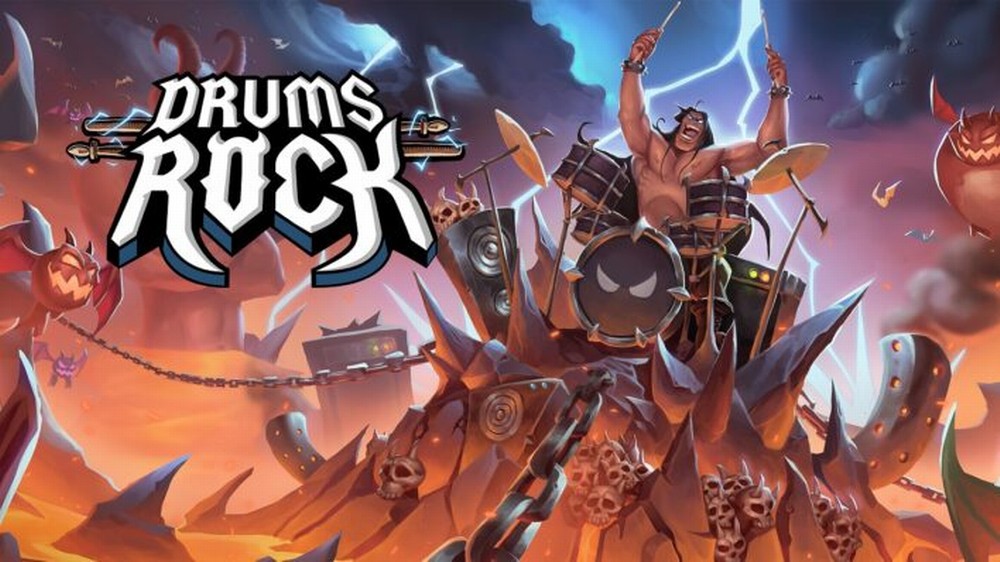It took me a little while to find the pulse of The Count Lucanor, recently released on PlayStation 4 by developer Baroque Decay. The game starts slowly, doesn’t show its hand for a little while, and the character that you play as is kind of a brat. Hans, our protagonist, has a father who is off fighting in a war, and a mother who is struggling to make ends meet at home without the chief breadwinner. Hans, in true childlike fashion, is oblivious to this, and when his tenth birthday comes, and his mother is unable to afford any presents for him, he sulks, declares himself a grow man, and decides that he must leave home and make his own fortune.
Hans’ journey starts off pleasantly enough, but when he meets a shepherd and joins him for a picnic, things take a decidedly stranger turn. Hans passes out, and wakes up next to a river of blood, dedicated to those who died in war. Trying to find his way home, Hans instead stumbles upon a castle, the sole inhabitant of which has pledged to donate his entire fortune to someone who can prove themselves worthy. This is where the experience of The Count Lucanor truly begins, and where I found that the game started to hit its stride. Hans is tasked with discovering the name of the mythical creature that acts as a guardian of the castle, and he must do this by beating various puzzle rooms and interacting with the other inhabitants of the castle, some who are friends and some who are foes.
The Count Lucanor is similar to a 2D, sprite-based amalgamation of the Metroidvania genre, Alien: Isolation, and the first Resident Evil. Most of the puzzles that you are required to solve aren’t particularly difficult or original, with early examples being a darkened maze, a room of timed danger tiles, and a room where the traps are invisible, and can only be detected by the spots of blood on the floor around them. Most rooms contain a letter from the guardian’s name, and as you progress through the puzzles, you gain access to more rooms, and the castle starts to gain more narrative and mechanical depth. This is partly due to the backtracking you are required to do once you discover items that will help you pass a previously inaccessible area, but also due to the interactions you will have with the characters that you meet along the way, and the aid that they can provide.
Once you get to a certain point in the game, the castle becomes populated with the Count’s servants, who will attempt to detect you and will cause you damage if they do so. To combat this, you can lay candles on the floor to increase your visibility, and detect the servants before they detect you, and you can also hide behind curtains and under tables if you’re close to being spotted. Similar to the puzzles, I didn’t find the stealth aspect of the game especially difficult, and so long as you keep your wits about you and don’t go rushing about the castle, you shouldn’t find too much to be worried about with the servants.
In actual fact, the greatest danger that I experienced with The Count Lucanor was the game itself. On multiple occasions I had stuttering issues, which lasted for a few minutes and then each time culminated in the game crashing entirely. What’s worse is that these crashes would cause me to lose my recent save games, meaning that I would have to reply the same puzzle rooms over and over, crossing my fingers that my progress would be saved each time around. It’s a real shame, as I was quite enjoying my time with The Count Lucanor up until this point, but as soon as I realized that this was going to be a repeated issue, I couldn’t settle down and enjoy the game for what it was, as I was constantly hyper-vigilant of even the slightest technical hiccup.
The Count Lucanor is an enjoyable light-horror experience, betrayed by some crippling technical issues. It’s the kind of game where you need to be aware of what you’re doing, and careful about not rushing into scenarios, but also one where you don’t have to be constantly on the edge of your seat for fear of everything crashing down around you (at least not in the game-world). However, the technical issues that are present really soured my experience, and as mentioned, made it difficult to truly enjoy the game from that point on. It’s a shame, as I can’t recommend a game where you can lose progress in the blink of an eye, but I feel as though players could get a rewarding experience from The Count Lucanor if these issues weren’t present. If you’re willing to take the risk with your time and effort, then The Count Lucanor is definitely worth playing, but don’t come crying if you hit the same technical brick walls that I did.
















